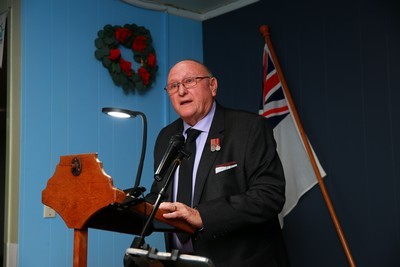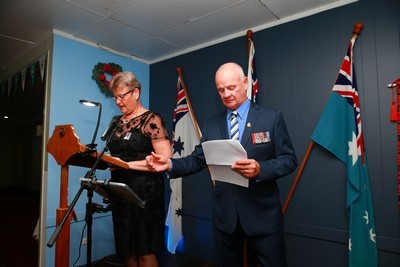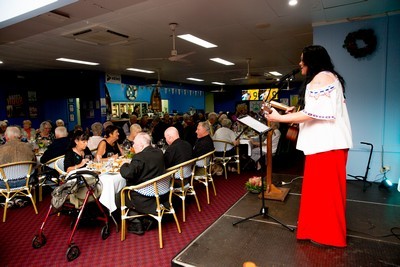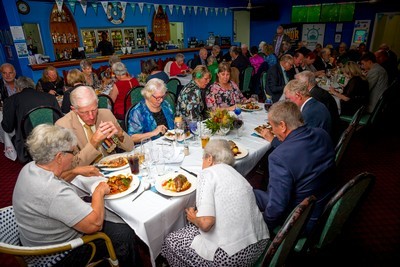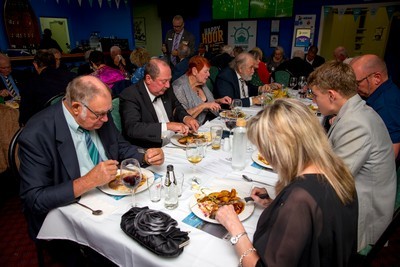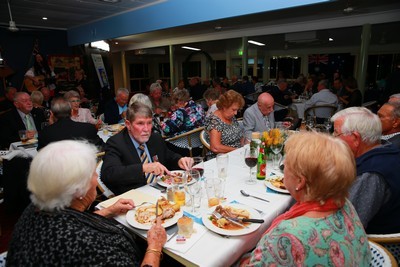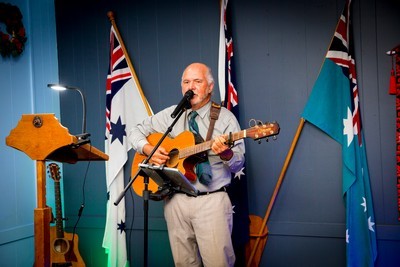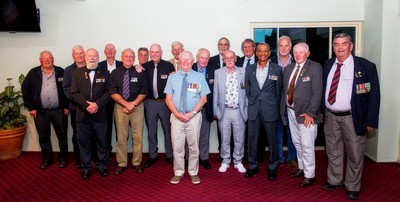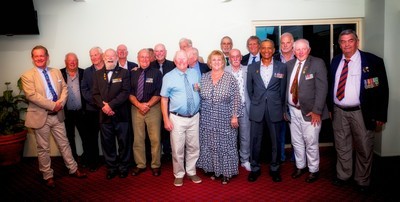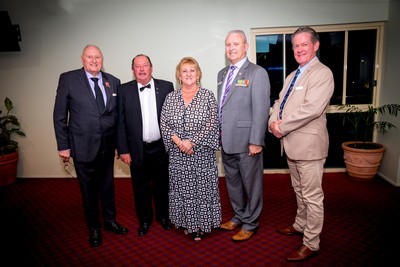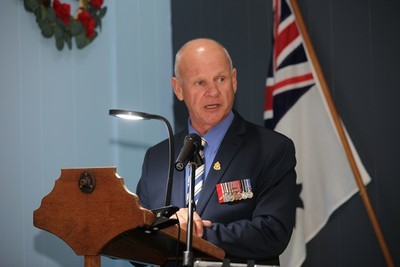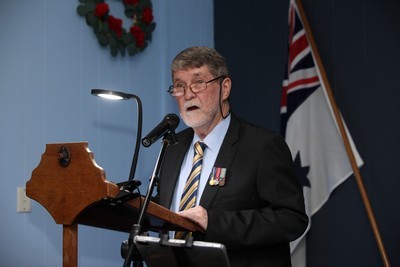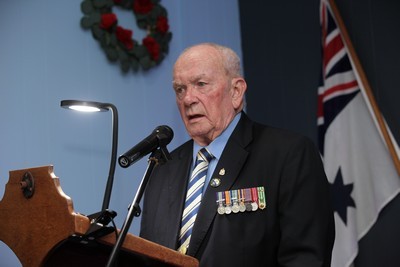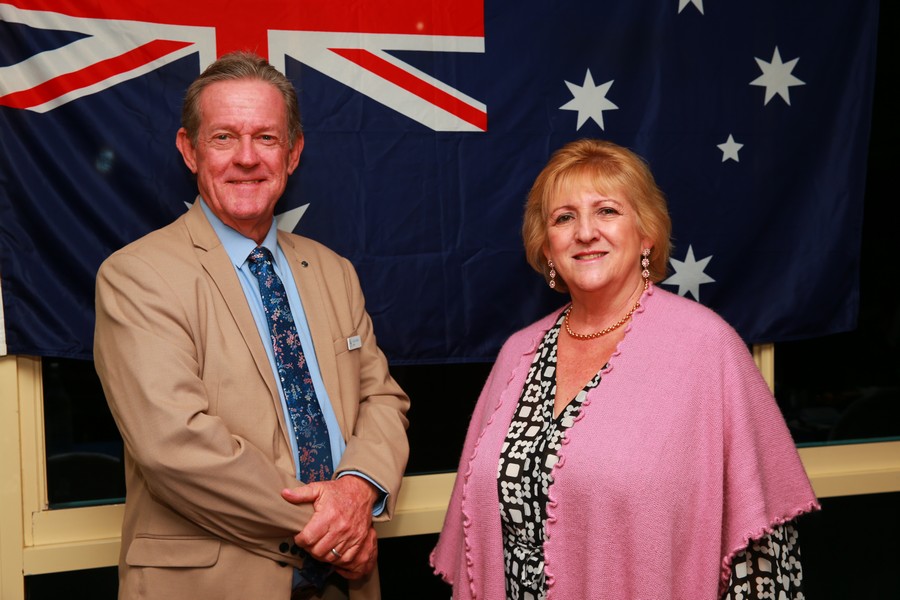Veterans, ex-service men and women, RSL members, Ladies and Gentlemen. It is an honour and privilege to be here with you today to acknowledge the 50th anniversary of the end of Australia’s involvement in the Vietnam War.
I thank the President of the Emu Park RSL Sub Branch, Gary Hedt, and you the members of Emu Park RSL for the invitation.
Can I also acknowledge the presence of the special dignitaries and guests advised at his introduction and welcome to the dinner.
Can I also thank Emcee John Gobbles for the introduction – I am now feeling much older ………….. so thanks!
________________________________________________________________
I have been asked to provide a reflection of my thoughts, views and a little bit of history for those non-military people in the room on the Vietnam War and beyond.
For me I was asked by a magistrate to consider joining the ADF. Which I did in May 1974, just after the Vietnam War had ceased. Many of my instructors during my training were in fact Vietnam Veterans.
The Vietnam War was Australia’s longest military engagement of the 20th Century.
The arrival of the Australian Army Training Team Vietnam in South Vietnam during July and August 1962 marked the start of Australia’s involvement in the Vietnam war.
Australia’s 10-year involvement in the Vietnam War began on 31 July 1962 and ended on 18 December 1972.
On 18 August every year we commemorate Vietnam Veterans’ Day, we pause and reflect on the bravery, teamwork and endurance that Australians displayed throughout this war. It’s a day when we recognise all those who served in Vietnam. We honour those veterans who:
- lost their lives during battle;
- returned home wounded, injured or ill;
- lost their lives in the years past since they returned; and
- still carry the physical and emotional scars of their service today.
We also pause to reflect on the huge impact of service on our veterans’ families.
Vietnam Veterans’ Day was originally known as Long Tan Day, chosen to commemorate the men of D Company, 6RAR who so bravely fought in the battle of Long Tan on 18 August 1966.
By the time the war had come to an end, almost 60,000 Australians served during a decade of conflict between 1962 and 1972. Tragically, 523 of them died and 3000 were wounded.
The cost to our nation was high – economically, socially and politically.
The Australian Government’s support for South Vietnam in the early 1960’s was in keeping with the policies of other nations, particularly the United States, to stem the spread of communism in Europe and Asia. After a request from the South Vietnamese Government, the Australian Government decided to provide military support.
The Australian commitment to the war began modestly in 1962. The first Australian contingent to be deployed was the Australian Army Training Team Vietnam – a 30-man group of instructors commanded by then Colonel Ted Serong DSO, OBE to work with the South Vietnamese.
The Australian Army Training Team Vietnam was the most decorated Australian unit to serve in South Vietnam. It had the distinction of being the first ADF unit into South Vietnam and the last unit out. But its story, like the stories of all who served in Vietnam, can’t be captured in figures, dates and days. Those who served in that war did so with honour. They inherited the Anzac legacy and built upon it.
On 24 November 1964, National Service was introduced. It was a contentious issue in our country.
The scheme was extremely selective: birth dates were used to select from the population of 20 year old males, who were to be called up for national service in the Army for a 2 year period.
But by 1965, as the political and military situation deteriorated, the Australian Government decided to increase its commitment.
The Training team was increased to 100 men and the 1st Battalion Royal Australian Regiment was deployed to South Vietnam as part of a battle group.
In March 1966, the battle group was increased to a Task Force consisting of 3 battalions.
At the height of Australia’s involvement, the Task Force numbered 8,500 troops. Three RAAF squadrons were also deployed and destroyers of the Royal Australian Navy joined US patrols off the North Vietnamese coast. Australian nurses also served at the Australian Field Hospital at Vung Tau.
Meanwhile, the Australian Government determined that the Army’s voluntary system of recruitment would not provide sufficient new recruits in time to meet the commitment to raise the Army’s battalion strength to 9.
We are here tonight to commemorate the end of the Vietnam War and to remember and honour those men and women, especially the 523 Australian servicemen who gave their lives for their country during the Vietnam War, and those many who served and have since passed on.
As well, there are many others who continue to suffer from their physical and psychological scars from their service in Vietnam. For Australians, Vietnam war remains one of the most difficult and controversial wars we have ever fought in.
Our soldiers returned home to a hostile reception, on many occasions. Opinion polls showed that most Australians were against conscripts going to Vietnam even though they broadly supported the war for a long period.
It divided us and unfortunately took us nearly 20 years to recognise that we had a responsibility to those who had served our country.
Again, today is an opportunity for us all to say thank you.
What occurred to our veterans and their families should never occur again. I have said this to many Vietnam Veterans who have chosen not to join the RSL, that it was a travesty that you went through those many traumatic and tumultuous times.
I say to all veterans in the strongest possible terms, in serving your country and in doing what your country asked of you, you displayed the qualities befitting of those who put on an Australian uniform. I hope you all understand the high regard in which you are held.
The most unforgivable thing that happened was that some demonstrators against the war began to target our soldiers who were fighting the war and this made a lot of them very bitter as they felt that their government and, in some cases, the Australian public, had clearly betrayed them.
This perception by the veterans was reinforced, as demonstrations against the war increased. Soldiers returned from Vietnam in the dead of the night and were immediately sent on leave. There was no welcome home parade for the battalions and units.
It was not until the Welcome Home Parade which was held in Sydney on 3 October 1987 and the later parade and unveiling of the Australian Vietnam Forces National Memorial in Canberra on 3 October 1992, for which I had the honour of being the commander of the catafalque party for this event, that Vietnam veterans felt that their service in the Vietnam War was now being recognised and valued by the Australian Government and the Australian people. It certainly needed to!
Australian forces in Vietnam faced a formidable enemy consisting of the Viet Cong, a locally organised guerrilla group which consisted of many who had fought against the French, and the North Vietnamese regular army. Most of the fighting that took place was jungle warfare. The Australian soldier was well trained for this type of fighting and quickly gained a reputation as a formidable jungle fighter.
Australian troops fought in a number of battles in Vietnam such as the Battle of Long Tan and the Battles at Coral and Balmoral and acquitted themselves extremely well. Our soldiers are considered true warriors around the world.
I have attended many commemorative services and sadly too many funerals of veterans and ADF personnel over the last 14 years volunteering in different positions with the RSL.
On each occasion I try to apply meaning to that particular service or ceremony.
To me, it still all boils down to Legacy: what we inherited, what we developed, what we cherished, and what we handed onto the next generation.
We need to remember the cost of war. This is particularly important for our younger generation today as we face an uncertain world and an uncertain future.
I once summed up my personal view of the Anzac Legacy in terms of four words: endurance, sacrifice, mateship and courage.
Along very similar views of RSL QLD – care, camaraderie and commemoration.
They are important words, but they are abstract terms.
I will try to dilute that Legacy into three points:
- Give us a job to do and we’ll do our bloody best to do it.
- While we’re doing it, we’ll do it in a way that makes you feel proud of us.
- And, while we’re doing it, we’ll look after our mates and we’ll continue to look after our mates when they get back.
That, to me, is the Legacy you all inherited.
That, to me, is the legacy that you continue to support.
Your service in South Vietnam occurred in the context of that global struggle. You did what your country asked, directed, you to do in that war of ideologies. And you served in an Australian way.
I am bemused these days when I read news stories that declare that Australia has lost its national character in its response to the pandemic. Where has the larrikin spirit gone?
My answer is that the larrikin spirit does still exists and is strong, but it has been set aside to a degree to meet a higher need.
Just as our Diggers did in World War 1 & World War 2, as you did in Vietnam.
The idea of the larrikin spirit comes from the behaviour of our Diggers when they were not in the trenches of Gallipoli and on the Western Front.
That larrikinism is part of the Anzac legacy. Larrikins they may have been, but when tasked to do their job – to get out of their trench and to attack – they obeyed.
Your actions and behaviours in South Vietnam were in the same vein. You were quintessential Anzacs: very much Australian in your behaviour but very much the professional soldier when duty called.
In so many ways your service exemplified what we understand to be the Anzac Legacy. But most importantly, you not only lived that Legacy – you built on it.
In my service life, I lived under the shadow and influence of your service – in all three Services. That is still true today of the current generation of Australian servicemen and women. Your Legacy goes far beyond being an assessment of the value of the Vietnam War – your Legacy is your influence on the character and development of the ADF over the past 60 years.
Far too many Vietnam Veterans were made to feel that they could not be proud of their service or that Australia was not proud of them.
That was a national mistake from which we should all learn and which we should all commit to avoiding in the future.
This is particularly true for any man or woman who has served in Iraq and Afghanistan – to them I say, you served diligently in difficult circumstances.
We are all proud of those who served our country in Vietnam and the conflicts that have followed around the world. The ultimate outcome in the country in which you served cannot be laid at your feet. Be proud of your own service as we are proud of you.
To those who specifically served their country in the controversial Vietnam War, I turn to you and acknowledge with dignity and say: Thank you for your service on behalf of the Australian people.
In conclusion, on this 50th year anniversary to mark the end of Australia’s involvement in the Vietnam War, let us reflect on those who did not make it back, or have since passed on.
May they rest in peace – but be assured “their names will liveth forever more”.
Lest We Forget
I thank you for your attention and hope I did not bore anyone with my reflection.
Propose A Toast
May I now ask everyone except those Vietnam veterans’, their partners and their families who are here tonight – to be upstanding.
“To those Vietnam Veterans, partners and Families – We sincerely thank you for your service to our Country.”
We Salute You All.


